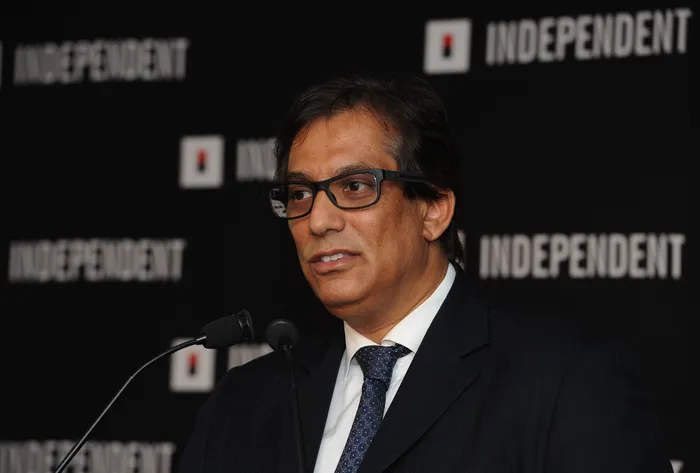Dr Iqbal Survé lambasts banks, the establishment for undermining black-owned firm, over 40 000 livelihoods

Independent Media executive chairman Dr Iqbal Survé dismissed the repeated propaganda being spewed by the likes of the AmaBhungane, Daily Maverick and News24. Picture: Dumisani Sibeko
Sizwe Dlamini
sizwe.dlamini@falcons.org.za
Sekunjalo Group Chairman Dr Iqbal Survé on Saturday dismissed the repeated propaganda being spewed by the likes of the AmaBhungane, Daily Maverick and News24, which he described as an attempt to destabilise and undermine the black-owned conglomerate.
Survé said this was once again part of a coordinated strategy that was initiated and funded by the establishment to bring down the businessman and companies linked to him, which include Independent Media.
Survé said: “It’s clear that the establishment wants to wipe out voices that are committed to transformation and black economic empowerment. This propaganda campaign started way back in 2018 and it’s now in full swing as we approach the 2022 ANC National Conference.
“It’s clear that the establishment and its media proxies can’t afford to have Sekunjalo and Independent Media, so after a four-year attempt to destroy us they have resorted to using financial institutions to deliver a ‘fatal blow’.”
In a David versus Goliath battle, and to ensure empowerment and transformation, as well as to stop abuse by South Africa’s all-powerful banking fraternity of socio-economic inequity, the wider Sekunjalo Group has launched several legal actions.
An order handed down by Judge Matthew Francis in the Western Cape High Court on Tuesday, February 15, 2022, revealed that transformative justice had an important role to play in South Africa’s banking sector.
“The banks have a case to answer to at the Equality Court as they have violated our Constitutional rights. We will continue with our legal action and will sue for damages of billions of rand to protect our employees, our suppliers and ultimately transformation,” said Survé.
He reiterated that no Sekunjalo company had ever been involved in corruption or money laundering. “This is acknowledged by the banks but they keep claiming reputational risk, meanwhile they themselves have been implicated.”
The banks have cited inter-company transactions as reasons for their reputational risk claims. “They mostly cite media reports and refer to the Mpati Commission to justify their discriminatory actions against Sekunjalo, related companies and myself,” Survé said.
“The establishment’s media proxy has clearly ignored our side of the story and the banks’ standpoint is the negative media reports. It’s interesting that they don’t take a similar stance with other companies who have been found and reported to be corrupt.”
There are about 20 companies, including Steinhoff, Tongaat Hulett and EOH, that have been found to have engaged in accounting fraud and some in money laundering, yet their bank accounts and those of their directors remain open.
Survé said the way the black-owned Sekunjalo and related companies had been treated smacked of racism.
“We overcame the previous establishment and its media proxy during apartheid and we can do it again. We owe it to our 8 500 employees and more than 40 000 livelihoods that will be affected by this anti-transformation move by the establishment.”
He said it was absurd that the banks would dwell on minor inter-company transactions – which were all legal – when dealing with a group that had an annual turnover of more than R8.5 billion. “There is nothing illegal about giving loans or making donations. Numerous individual and business entities are on record for having made donations to the CR17 campaign.”
South Africa needed to rise against the financial institutions, said Survé, “because we recognise the apartheid tactics at play here”.
“As South Africans, we should show these institutions true freedom. This is a fight for the soul of South Africa as we gear up for the next elections.”
Falcons
| investigations@falcons.co.za